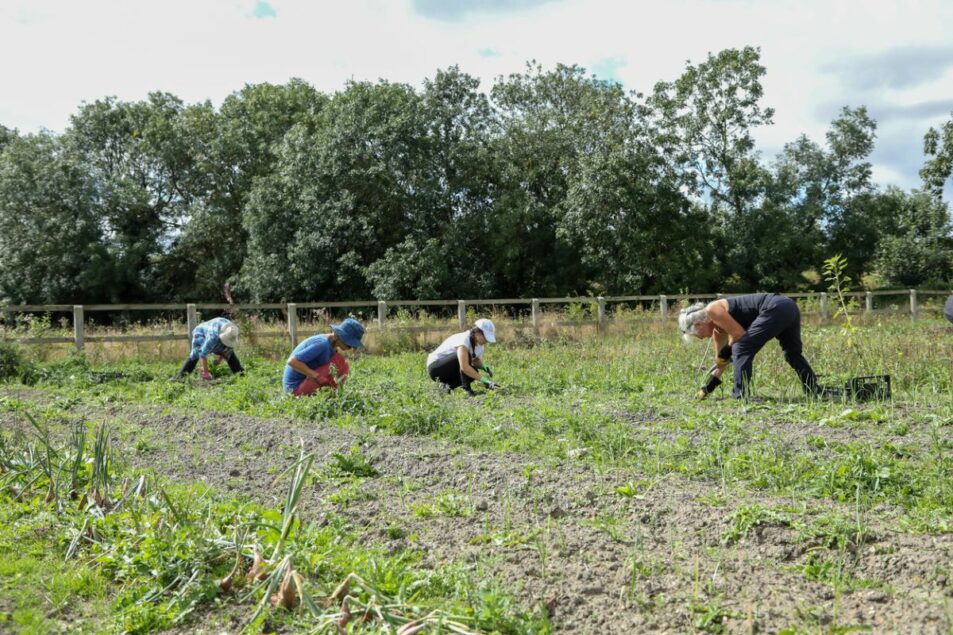
Anyone looking to assess the impact of President Trump’s immigration policy on U.S. agriculture might do well to study the labor shortage that hit farms in the United Kingdom with the arrival of COVID-19.
In 2020, due to a combination of pandemic lockdowns and Britain’s withdrawal from the European Union, the country found itself without enough workers to pick crops. Foreign labor, mostly from Eastern Europe, had been accounting for as much as 95% of the workforce, and that supply was abruptly cut off.
In response, the U.K. government launched its Pick for Britain campaign, in which it urged underemployed British citizens to take to the fields to serve as seasonal fruit and vegetable pickers and packers. Then-Prince Charles appeared on TV to appeal personally to the populace to do its part to keep grocery shelves stocked with essential items.
The message seemed at first to spur keen interest among Brits, with thousands inquiring through an online portal that was supposed to hook up job seekers with the farms. In the end, though, only a small number were actually employed for that purpose, and just one year later, Pick for Britain was scrapped. Eventually, many of the foreign workers returned, their numbers boosted by expansion of the U.K.’s Seasonal Agriculture Workers Pilot.
As a source of additional labor, a portion of Britain’s agriculture industry began drawing on workers from Indonesia, opening up another can of worms when it was revealed that those laborers were at risk of severe “debt bondage” due to fees being charged by unlicensed foreign employment brokers.
Reasons for the U.K.’s failed domestic effort included low pay, the arduous nature of farm work, a glitchy employment website, and the lack of adequate training for prospective workers in what had become an overwhelmingly service-oriented economy. Turned out that foreign workers — many of whom were undocumented — were performing an indispensable role in the nation’s agriculture supply chain.
The story serves as a cautionary tale for U.S. policymakers and the current controversy over immigration, according to Barbara Guignard, principal with the procurement and supply chain consultancy Efficio. Already, she says, the country’s agriculture sector is hampered by a seasonal visa program that’s inefficient, costly to farmers and not applicable to year-round workers. And if would-be immigrants were to face further restrictions, there wouldn’t be enough domestic workers to fill the void.
“The U.S. will always need foreign workers, [as will other] democracies in the West,” Guignard says. “They have to find a way to ramp that up.”
One possible step toward a solution — as politically unpalatable as it might seem — is to grant more work visas to undocumented laborers who are already in the country. It’s normal practice on many American farms for such individuals to be employed for years, Guignard says, and by legitimizing their status, employers could ensure a more consistent and reliable source of labor.
The U.S. agricultural industry’s reliance on workers who have no authorization to work —
and therefore lack any legal protections and are open to abuse —
is huge. According to the U.S. Department of Agriculture, the share of hired crop farmworkers who were not legally authorized to work in the United States grew from roughly 14% in 1989–91 to almost 55% in 1999–2001; in recent years it has declined to about 40%. In 2020–22, 32% of crop farmworkers were U.S. born, 7% were immigrants who had obtained U.S. citizenship, 19% were other authorized immigrants (primarily permanent residents or green-card holders), and the remaining 42% held no work authorization.
A longer-term strategy involves taking a more proactive approach to procurement. Guignard says buyers could be more flexible about order lead times, building pricing concessions into contracts in the event of a supply chain disruption caused by a labor shortage. “If you have an open conversation with a key supplier when a situation happens, you’re much more likely to be able to address it,” she says.
Automation, of course, springs to mind as an answer to the dearth of human workers (who, in any case, are generally less efficient and reliable than machines). And artificial intelligence — touted these days as the cure-all for just about any business issue — can help by detecting which crops are ripe for picking, and where a constrained supply of labor should be directed.
Technology takes time to implement, however, and in the meantime, the agriculture industry needs to convey to the Trump administration and Congress the message that non-citizens play a crucial role in keeping it running, Guignard says. For the immediate term, she suggests a concerted lobbying effort that seeks a delay in enforcement of immigration strictures for farms, while pushing up quotas for work visas. “That’s the most reasonable approach,” she says.